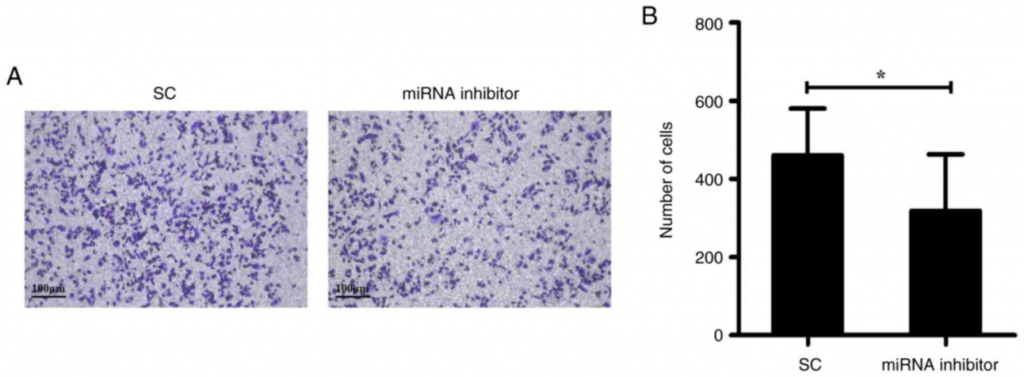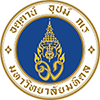
Breast cancer is an important worldwide public health concern and its incidence increases every year. MicroRNAs (miRs/miRNAs) are small non-coding RNAs that control gene expression at the post-transcriptional level. Dysregulation of certain miRNAs is involved in carcinogenesis, cancer cell proliferation and metastasis. This study found that one of miRNAs, namely, miR-222-3p was highly expressed in highly aggressive breast cancer cell line, MDA-MB-231. Inhibition of miR-222-3p expression reduced proliferation by 20-40% and migration by 30%, suggesting that this miRNA regulates the aggressive phenotype. Bioinformatic analysis of miR-222-3p targets identified 25 mRNA targets whose products are involved in proliferation and cell-cycle control. The results of the present study indicated that miR-222-3p can be a potential target for cancer intervention.
มะเร็งเต้านมเป็นปัญหาทางสุขภาพที่สำคัญของทุกประเทศทั่วโลก มีอุบัติการณ์การเกิดโรคเพิ่มขึ้นในทุกปี ซึ่งสาเหตุหลักของการเสียชีวิตจากโรคชนิดนี้มาจากการแพร่กระจายของเซลล์มะเร็ง (metastasis) จากอวัยวะต้นกําเนิดไปยังอวัยวะอื่นของร่างกายในบริเวณที่ไกลออกไป ไมโครอาร์เอ็นเอ(miRs/miRNAs) เป็นอาร์เอ็นเอขนาดเล็กที่อยู่ในกลุ่ม non-coding RNA โดย miRNAs ทำหน้าที่ควบคุมการแสดงออกของยีนที่เกี่ยวข้องกับขบวนการชีววิทยาต่าง ๆ รวมทั้งในเซลล์มะเร็ง ในการวิจัยนี้ได้ทำการสำรวจหาระดับ miRNA ที่แสดงออกสูงผิดปกติในเซลล์มะเร็งเต้านมสองชนิด ได้แก่ MCF-7 (ความสามารถในการแพร่กระจายต่ำ) และ MDA-MB-231 (ความสามารถในการแพร่กระจายสูง) พบว่า miR-222-3p มีระดับการแสดงออกที่สูงผิดปกติใน MDA-MB-231 cell และเมื่อทำการยับยั้ง miR-222-3p พบว่าทำให้เซลล์เจริญเติบโตลดลงและยับยั้งการเคลื่อนที่ของเซลล์เช่นกัน การวิเคราะห์ด้วยวิธี bioinformatic พบว่า miR-222-3p ควบคุมการแสดงออกของยีนที่ควบคุมการเจริญเติบโตและการเพิ่มจำนวน ทำให้เชื่อว่า miR-222-3p อาจนำมาใช้เป็นเป้าหมายของการบำบัดมะเร็งในอนาคต
Reference:
Phannasil P, Akekawatchai C, Jitrapakdee S. MicroRNA expression profiles associated with the metastatic ability of MDA‑MB‑231 breast cancer cells. Oncol Lett. 2023 Jun 22;26(2):339.
DOI: 10.3892/ol.2023.13926.
Relevant SDGs

BC investigator

